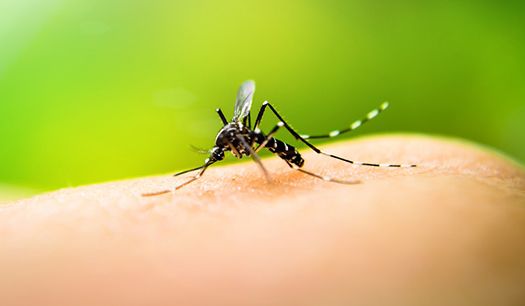NIH Looks to Uncover Connection Between Zika and HIV
As with other viruses, Zika may increase rates that infected mothers give HIV to their babies, despite medications.

The National Institutes of Health (NIH) is looking to determine whether Zika virus infection poses an additional risk in women whose pregnancies are already complicated by HIV.
NIH researchers are concerned that Zika may have the potential to interfere with medications that prevent HIV from being passed from a pregnant woman to her fetus, and increase the rates that the child contracts HIV, as has been seen with syphilis and type 2 herpes simplex virus.
“Other studies have shown that the presence of a co-infection can influence mother-to-child HIV transmission,” said the study’s lead author Catherine Spong, MD. “So we’re looking to this study to provide similar information on whether co-infection with HIV and the Zika virus affects the transmissibility of either one or both of these viruses.
Spong’s new study aims to uncover any previously unidentified connection between the conditions, and whether the effects of either disease are exacerbated by the other.
“Given the neurotoxic effects seen in newborns of mothers with Zika infection, we’re especially interested in determining whether co-infection influences the rate of neurological complications,” Spong told MD Magazine. “In addition, there has been a question on whether coinfection, such as with Dengue or other Flaviviruses, potentiates the impact of Zika. This study will be able to add to that information by studying the impact of…HIV on Zika.”
Spong and her team of researchers will enroll pregnant women who are infected with HIV only, pregnant women infected with Zika virus only, pregnant women with HIV and Zika, and women not infected with either virus.
Initially, researchers will enroll 200 pregnant women. If successful, they will follow up by attempting to enroll an additional 1,800 pregnant women, for a total of 2,000. These women will be monitored throughout their pregnancies and for six months after giving birth. Infants will be observed for a year after birth.
The study is enrolling participants in Puerto Rico and will soon recruit volunteers at sites in the continental United States and in Brazil. It is expected to run from 4 to 6 years.
“We know very little about how co-infection with HIV and Zika could affect women, pregnancy and infants. Given that Zika infection rates are likely to increase in many parts of the world where HIV infection is widespread, we hope to uncover information that will help practitioners provide the best care for their patients,” Spong said.